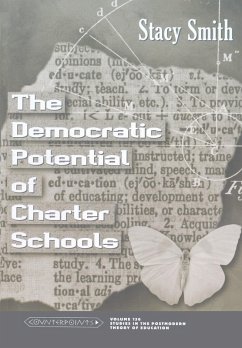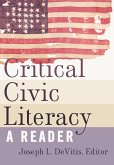Since Minnesota enacted the first legislation in 1991, charter school reform has swept the country. Although their stances are vastly different, both proponents and opponents of the charter movement emphasize its privatizing aspects. In this book Stacy Smith argues that the tendency to emphasize the privatizing, market-oriented aspects of charter reform is overly simplistic. Consequently, virtually all debate on the topic neglects, or at least downplays, the democratizing potentials of charter schools. She urges others interested in preserving the "public" nature of public education to consider such potentials as equalized and expanded choice, inclusive decision making, and localized accountability before summarily writing off charter school reform as antidemocratic.
"This is a superb book. In it Stacy Smith not only tells a compelling story of a school struggling to be a democratic community, but also embeds this account in a philosophically illuminating discussion of the nature of democratic practice. It is one of the few books of which I am aware in which ethnography and philosophy are equal partners and are done with equal competence." (Kenneth Strike, University of Maryland)
"The increasingly contentious debates on charter schools are sorely in need of balanced, thoughtful vision informed by our nation's historical struggles around democracy, public participation, and the common school. Stacy Smith's impressive book achieves all this and more. Dr. Smith asks hard questions, not only of charter schools, but of public schooling in America. Her voice is smart, reasoned, and compelling and her portrait of Winthrop Academy Charter School finally grounds the charter debates in the complex world of teaching, learning, and community-building.At last, thanks to Dr. Smith, key philosophical issues about social reproduction and schooling are placed center stage in our current reform struggles." (Eric Rofes, Humboldt State University)
"The increasingly contentious debates on charter schools are sorely in need of balanced, thoughtful vision informed by our nation's historical struggles around democracy, public participation, and the common school. Stacy Smith's impressive book achieves all this and more. Dr. Smith asks hard questions, not only of charter schools, but of public schooling in America. Her voice is smart, reasoned, and compelling and her portrait of Winthrop Academy Charter School finally grounds the charter debates in the complex world of teaching, learning, and community-building.At last, thanks to Dr. Smith, key philosophical issues about social reproduction and schooling are placed center stage in our current reform struggles." (Eric Rofes, Humboldt State University)








